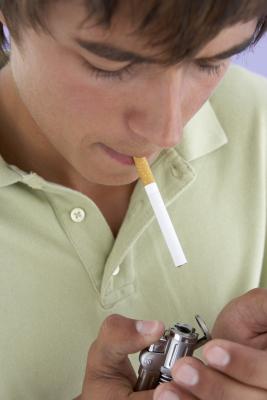Nearly all parents hope their teens make it to their 18th birthdays without taking a puff of a cigarette. According to KidsHealth, however, 20 percent of these proud parents will be disappointed. Despite the warnings, potential health effects and costs associated with smoking, 1 in 5 high school students still pick up the habit.
Dangers of Starting Young
Teens who start smoking will likely struggle to break the habit throughout their entire lives, making preventing teen smoking even more vital. As KidsHealth reports, 9 out of 10 smokers pick up the habit before they turn 18. This means that if you can get your teen through those formative years smoke-free, you can increase the likelihood that he remains smoke free for his entire life.
Peer Pressure
For many teens, peer pressure leads them to pick up the puffing habit. Teens are naturally eager to conform and change their behavior to mirror that of their friends. Because of this, adolescents who are friends with smokers are likely to become smokers themselves. Even if their smoking friends do not encourage their non-smoking friends to pick up the habit, just seeing the fellow teens they respect smoking can entice some to start.
Building a Rep
During teenage years, children create an identity for themselves. For some teens, developing this identity requires picking up some reputation-appropriate habits, such as smoking. Teens who want to look tough or give off a too-cool-for-school vibe may elect to smoke, as this habit fits in with the rule-breaking persona they are trying to create.
Media Influences
Many pin teen smoking, at least in part, upon the media. These individuals argue that teens witness singers, actors and other public figures as they smoke and, as a result, opt to smoke themselves. Lawmakers have fought for regulations that limit scenes of smoking on TV and in movies.
Future
While the health ramifications of smoking are highly publicized, many teens are able to turn a blind eye to these warnings by telling themselves that they don’t apply to them. These health consequences seem to many teens to be in the distant future and, as a result, not really real. It is easy for teens to lie to themselves about their risks of suffering one of these health consequences, as teens, by their very nature, and prone to feeling invincible.





